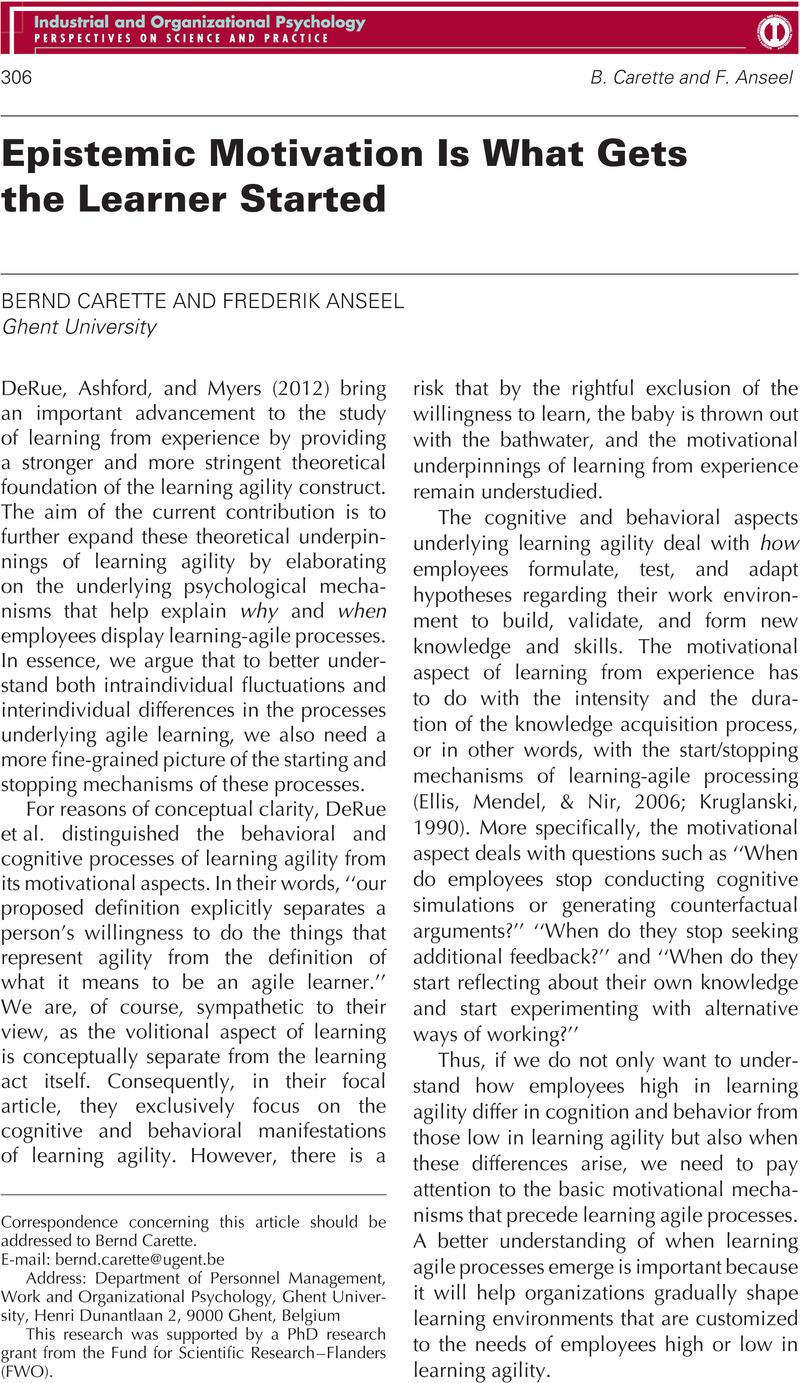Crossref Citations
This article has been cited by the following publications. This list is generated based on data provided by Crossref.
DeRue, D. Scott
Ashford, Susan J.
and
Myers, Christopher G.
2012.
Learning Agility: Many Questions, a Few Answers, and a Path Forward.
Industrial and Organizational Psychology,
Vol. 5,
Issue. 3,
p.
316.
Carette, Bernd
Anseel, Frederik
and
Lievens, Filip
2013.
Does career timing of challenging job assignments influence the relationship with in-role job performance?.
Journal of Vocational Behavior,
Vol. 83,
Issue. 1,
p.
61.
Ellis, Shmuel
Carette, Bernd
Anseel, Frederik
and
Lievens, Filip
2014.
Systematic Reflection.
Current Directions in Psychological Science,
Vol. 23,
Issue. 1,
p.
67.
류혜현
and
Oh,Hun-Seok
2016.
Learning agility: Issues and Challenges.
The Korean Journal of Human Resource Development Quarterly,
Vol. 18,
Issue. 4,
p.
119.
Zhang, Xiaojie
Fang, Yulin
He, Wei
Zhang, Yixiang
and
Liu, Xinmei
2019.
Epistemic motivation, task reflexivity, and knowledge contribution behavior on team wikis: A cross‐level moderation model.
Journal of the Association for Information Science and Technology,
Vol. 70,
Issue. 5,
p.
448.
Matteson, Miriam
Ming, Yue
Wheeler, Hannah
and
McShane, Matthew
2022.
Information Literacy in a Post-Truth Era.
Vol. 1533,
Issue. ,
p.
399.
Milani, Roberta
Sommovigo, Valentina
Ghirotto, Luca
and
Setti, Ilaria
2024.
Individual differences in learning agility at work: A mixed methods study to develop and validate a new scale.
Human Resource Development Quarterly,
Stollberger, Jakob
Guillaume, Yves
and
van Knippenberg, Daan
2024.
Inspiring, Yet Tiring: How Leader Emotional Complexity Shapes Follower Creativity.
Organization Science,
Vol. 35,
Issue. 3,
p.
1015.





